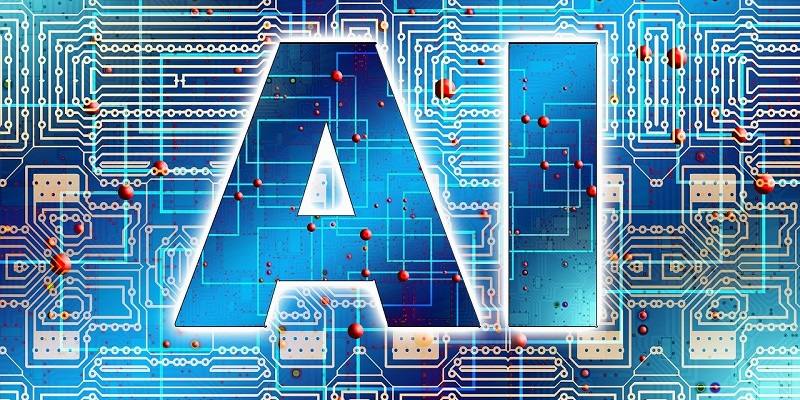OpenAI, the renowned artificial intelligence research laboratory, made waves at its recent DevDay conference where it announced a range of groundbreaking tools and platforms that are set to redefine the landscape of chatbot customization and foster a thriving developer community in generative AI technology. These cutting-edge innovations, including chatbot customization tools called GPTs, the Assistant API for custom applications, and the Text-to-Speech API for real-time audio streaming, have received significant praise and are expected to revolutionize the way developers build and deploy AI-powered solutions.
Chatbot Customization Tools
OpenAI’s highly anticipated GPTs are game-changing chatbot customization tools that enable the creation of domain-specific bots. These cutting-edge tools empower developers to easily train AI models for diverse tasks, such as customer service or documentation Q&A, by fine-tuning GPTs for their particular use cases. With GPTs, developers can create highly specialized bots that are tailored to the needs of their specific industries or applications, providing users with more accurate and personalized assistance.
Assistant API
OpenAI’s Assistant API is a powerful tool that grants developers the ability to build their own custom applications using GPTs. This API extends the capabilities of GPTs by offering features like thread handling and sandboxed Python code execution, enabling developers to create interactive conversational experiences. By harnessing the Assistant API, developers can craft sophisticated applications capable of understanding context, maintaining dialogue flow, and providing intelligent responses. This opens up a vast array of possibilities for implementing AI-driven solutions in various domains.
Text-to-Speech API
In addition to chatbot customization tools and the Assistant API, OpenAI unveiled the Text-to-Speech (TTS) API, which provides an advanced solution for real-time audio streaming. This API supports six different voices, each with distinctive characteristics and tonal qualities, allowing developers to create personalized and engaging AI-generated audio experiences. The real-time audio streaming capabilities of the TTS API serve numerous applications, including voice assistants, audiobook narration, and interactive voice-based applications.
DevDay Conference
OpenAI’s DevDay conference received overwhelming praise from attendees and industry experts. AI advisor and investor Allie K. Miller extolled the event as having an “11/10 builder activation score,” highlighting the highly engaging and informative sessions that covered a wide range of topics in AI research, development, and deployment. The conference showcased OpenAI’s commitment to fostering knowledge sharing and collaboration within the AI community, further bolstering its reputation as a leading force in the field of generative AI technology.
Monetizing GPT-Powered Bots
OpenAI plans to launch the GPT Store, a platform that allows developers to publish and monetize their GPT-powered bots. This initiative presents an exciting opportunity for developers to showcase their innovative AI solutions to a broader audience while earning revenue. With the GPT Store, developers can not only gain recognition for their work but also contribute to the growth of the AI ecosystem by sharing their expertise and providing valuable AI-powered services to users.
Ensuring Ethical Use
OpenAI is committed to ensuring that the GPTs published in the GPT Store follow acceptable policies and ethical guidelines. OpenAI CEO Sam Altman reiterated the organization’s dedication to responsible AI deployment, emphasizing the importance of preventing the misuse of AI technology. By prioritizing policy compliance, OpenAI aims to maintain the integrity and trustworthiness of the GPT Store, fostering an environment where developers and users can confidently engage with AI-powered solutions.
OpenGPTs
LangChain, a prominent contributor to the AI community, has developed OpenGPTs—an open-source alternative to OpenAI’s tools. OpenGPTs provides developers with greater flexibility and control over their language models, enabling customization and refinement to suit specific requirements. With OpenGPTs, developers can fine-tune language models according to their preferences, expanding the possibilities for AI-driven applications and empowering them to create solutions that cater to unique use cases.
Hosted Version of OpenGPTs
To make OpenGPTs more accessible to users, LangChain is working on a hosted version of the platform. This hosted version eliminates the need for users to manage their own cloud hosts, simplifying the process of using OpenGPTs and making it more convenient for developers to leverage the flexibility and power of customizable language models. This offering from LangChain aims to democratize AI capabilities and enable a broader developer community to harness the potential of generative AI technology.
Fostering a Robust Developer Community in Generative AI
OpenAI’s new tools and platforms mark a significant step toward fostering a robust developer community in the realm of generative AI technology. By providing powerful chatbot customization tools, the Assistant API, and the Text-to-Speech API, OpenAI empowers developers to create sophisticated and personalized AI solutions. With the upcoming GPT Store and LangChain’s OpenGPTs, developers gain opportunities to showcase their work, monetize their innovations, and exercise greater flexibility and control in their projects. These advancements are expected to inspire collaboration, innovation, and the shared growth of the generative AI community.
OpenAI’s newly announced tools and platforms have set a new standard for chatbot customization, custom application development, and audio streaming in the AI industry. Developers now have access to powerful tools such as GPTs, the Assistant API, and the Text-to-Speech API, which enable them to create highly specialized chatbots, build custom applications, and deliver compelling audio experiences. With the upcoming GPT Store and LangChain’s OpenGPTs, OpenAI is providing avenues for developers to monetize their work and exercise greater flexibility and control over their AI projects. These innovations not only revolutionize the developer experience but also foster a vibrant and collaborative community within the generative AI landscape.

